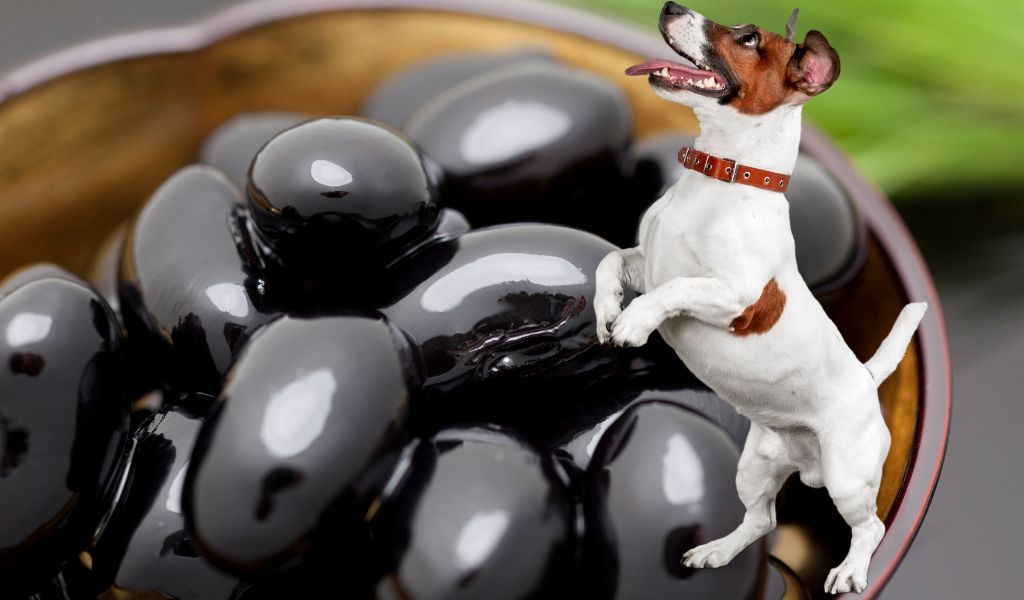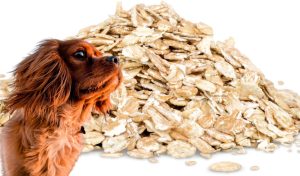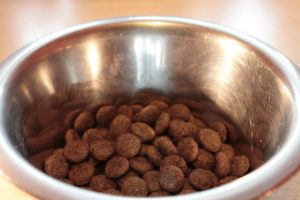Are you curious about what kind of human food is safe for your dog to eat?
One popular plant-based snack option many dog owners give their pet pooches is black beans – but before you go dishing them out as doggy snacks, it’s important to consider if they’re really safe for your dog.
Dogs can eat black beans provided that they are cooked properly without any flavourings or additives. They can be a good source of protein and fibre but should only be fed in small quantities to avoid any risk of stomach upsets.
What are black beans?
Black beans, also known scientifically as Phaseolus vulgaris, are a type of legume that are especially popular in Central and South America.
They have been eaten since ancient times and are a rich source of dietary fibre, as well as vitamins B1, B2 and B3.
Black beans also provide essential minerals such as folate, iron, potassium, magnesium and zinc.
Rich in protein and antioxidants, black beans are a nutrient-dense food with few calories – making them an ideal source for sustaining energy throughout the day.
Can dogs eat black beans?
Dogs can potentially eat black beans, however they need to be cooked first.
Eating uncooked black beans can cause serious digestive issues in dogs such as vomiting, diarrhea, and upset stomach.
In addition, the dietary needs of a dog are drastically different from that of a human and these dietary requirements cannot be met simply by adding black beans to the dog’s food.
They require a diet that consists primarily of high quality proteins with some carbs added for energy.
If owners insist on adding regular beans to their pet’s meal, they should make sure that it is no more than 10% of the total calorie intake so as not to cause any digestion problems.
The Bottom Line:
Black beans are considered to be nutritional powerhouses that are rich in plant-based protein, fibre, and antioxidants that help manage blood pressure, sugar, and cholesterol levels.
The benefits of black beans for dogs
Black beans are a healthy, nutritious option for dogs looking to get the most out of their meals.
As an excellent source of protein and various vitamins, black beans can help your canine stay active and energized while providing numerous beneficial health effects.
Research shows that black beans may be able to raise levels of antioxidants within the body, neutralizing potentially harmful free radicals and aiding in digestion – helping reduce indigestion related problems like flatulence.
These wholesome legumes also contain dietary fibre which can be beneficial to dogs with diabetes or those at risk for developing diabetes.
Not only are they naturally low in fat and cholesterol, but eating them may even help support healthy weight management as well.
How to give black beans to your dog
Feeding your dog black beans can be a great source of dietary fibre, protein, and antioxidants.
You should, however, introduce them slowly.
Start by adding a small amount of cooked black beans to their existing food and monitor for any adverse reactions.
If you have an older or very sensitive dog, you may wish to partially mash the beans before serving to ensure that there are no distractions from the taste or texture.
Remember to keep portions small as too much fibre can lead to digestive distress for dogs.
It’s a good idea to speak with your vet before adding black beans into your pet’s diet and make sure it is in balance with other proteins and nutrients they need for optimal health.

Can dogs eat black bean burgers or sausages?
The biggest issue with these types of products is that they contain a range of other ingredients that could be harmful for your dog.
Many plant based foods, such as black bean burgers, contain onions, garlic and other flavourings and additives that are intended to make the product taste like meat.
Most of these additions can be problematic for dogs causing diarrhea, listlessness, vomiting and even more serious complications if fed in volume.
So, things such as black bean burgers, sausages and similar are best avoided.
Things to watch out for when feeding black beans to your dog
When feeding black beans to your dog, it is important to realize that these items should always be cooked and never given out raw.
Keep in mind that dogs are not able to digest raw beans or hard seeds, so you need to make sure they’re soft before serving them.
When cooked, black beans may provide a rich source of protein for your dog, however, caution must be taken as any bean should not make up more than 10% of the diet.
Too many beans can cause gastric distress such as flatulence and upset stomachs.
Furthermore, never add any other ingredients to the beans such as onions, garlic, or other spices as these can be toxic to dogs.
Finally, make sure that you are monitoring your dog’s reaction when introducing black beans into their diet and consult with a veterinarian if needed.
Final Words
Black beans can be an excellent addition to your dog’s diet, as long as they are cooked and introduced slowly in small portions.
When done properly, black beans may provide a variety of beneficial health effects including better digestion, improved weight management, and increased antioxidant levels.
Always remember to consult with your veterinarian before introducing any new food to your dog’s diet and keep an eye on their reactions to ensure safety.
With proper supervision, black beans can be an excellent source of nutrition for your canine companion.










